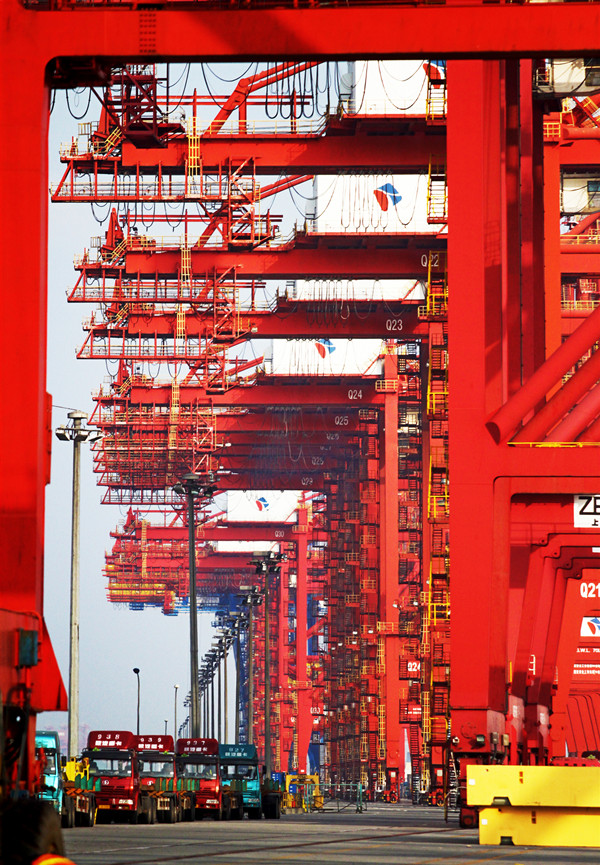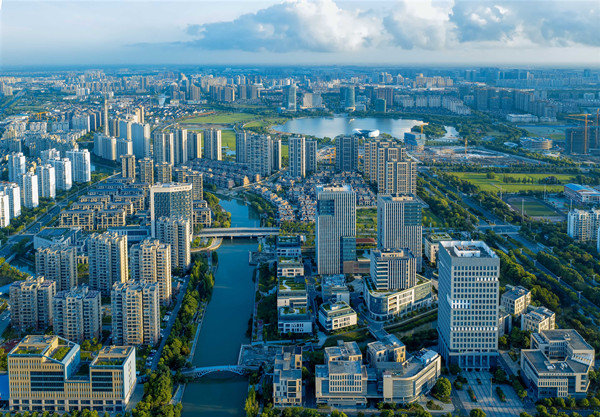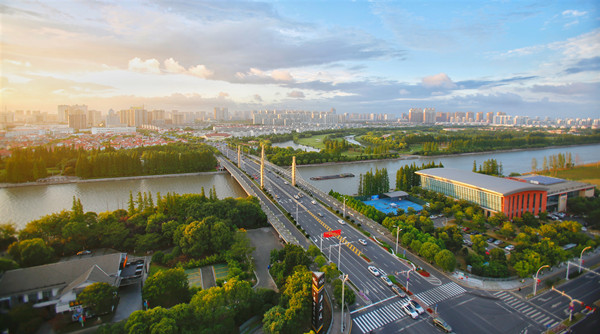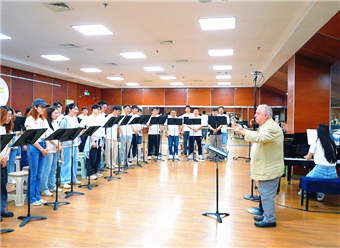Business promise of Taicang
Trade organization likes dynamic commercial area with reasonable rents
An organization which supports German businesses has chosen Taicang in Jiangsu province as only its third base in China.
The German Centre for Industry and Trade, officially opened its office in the county-level fourth-tier city on June 2 at an event attended by local officials and the media.
|
A German lecturer teaches vocational skills to students in Taicang of Suzhou. Photos provided to China Daily |
|
Christian Sommer, chairman of the German center with Taicang's Party Chief Wang Jianfeng. |
The 8,000 square-meter office space over five floors in the Dong Ting Building in Middle Zhenghe Road, which represents an 80 million yuan ($12.2 million) investment, will add to the organization's existing operations in Shanghai and Beijing.
It will be the home of middlestadt (small and medium-sized) German companies but it will also help Chinese companies wanting to do business in Germany.
Christian Sommer, the chairman of the Shanghai center who will also take the same role in Taicang, says the German Centre has been targeting the city for a long time.
"We have been watching Taicang's development as a city over the last five to 10 years," he said.
"The city has met several conditions. It has a very German-friendly local government, around 80 (of the 250) German companies already based in the city gave us really positive feedback and we were impressed by the plans for future infrastructure development, which will make it a very desirable business location in future."
Both the Shanghai and Taicang German centers are wholly owned by BayernLB (Landesbank), the German small business bank, whereas the Beijing branch is part of Landesband Baden-Wrttemberg.
The Shanghai branch celebrated its 20th anniversary last year (opening in 1995) and Beijing in 1999. The centers are part of a global network, which also includes branches in India, Singapore and elsewhere.
The Taicang center, which was opened by Michael Buecker, a member of BayernLB's board, offers all the advantages of the Yangtze River Delta, one of China's most dynamic commercial areas, with significantly cheaper rents.
"It is a very cost efficient environment for businesses with rentals one third or one quarter of those in Shanghai," added Sommer.

So far around 12 companies have signed leases to run operations in the Taicang center, of which up to eight are in the service sector, including accounting services, legal support and human resources.
"They are coming from Shanghai to Taicang to be closer to their customers and therefore to provide a better service and support to them," said Sommer.
Sommer, who has been in China for 20 years, said the center would also welcome Chinese and international businesses as tenants and particularly wants to be a bridge for Chinese small and medium-sized companies, many of which are considering overseas acquisitions as well as trade, to do business in Germany.
"It is not simply a tool for supporting German businesses but we also want to help smaller Chinese companies to find their way to Germany," he said.
The organization has already been raising the awareness about Taicang in Germany, holding several events, including one in its Munich headquarters, which attracted 180 German companies and the China Consul General Yang Huiqun. Another similar event is planned in Stuttgart in October.
"Our Munich event was very successful and the aim was to raise the awareness of Taicang among German small and medium-sized companies," he said.
"Not everything is about work. Leisure is also important and we want to get across that it is a good place with modern facilities."
Sommer says he is particularly keen to attract German companies to Taicang that have never yet had a permanent presence in China.
He believes the city offers them an ideal entry point in the world's biggest consumer market.
"There is a generational change happening among many Chinese businesses with the older generation giving way to a second or even a third generation and these younger entrepreneurs are looking at their future capacity and they are looking to the world," said Sommer.
"Many of them (German companies) will have been doing business with China but through agents or by attending trade fairs and they have yet to take the next step of opening up a new office in China."
Sommer is not concerned that the "new normal" of slowing growth in the world's second largest economy will create an increasingly tough business environment for German companies.
"Frankly, I am quite happy to see that the China economy is not growing anymore by 8 or 9 percent. The current government is having to try and correct a lot of the negative consequences from running the economy in the fast lane for 30 years," he said.
"One particular problem many companies, including German ones, have faced is having to increase salaries by double digits, although productivity was not increasing at the same rate. Companies were also forced to recruit almost anyone. Companies will be able to focus more on just hiring high quality people in the future."
The German center is keen to be part of the community and the Shanghai branch will be opening its doors to screen matches during Euro football championship, despite them being played in the middle of the local night time.
"We will be showing the German matches, although these will obviously feature the European teams that Germany will be playing," added Sommer.
Sommer is confident the new Taicang center, which will be run by managing director Matthias Mueller, who also has two decades' experience in China, will prove a success and help a lot of German small and medium-sized businesses develop internationally.
"It is an ideal location for that. Middlestadt companies are the backbone of the German economy. They have proved that it is not the size of a company that determines its success. We want to help them build their international success," he said.
"We also want to help Chinese small and medium-sized companies from the city to build links with China."
andrewmoody@chinadaily.com.cn
(China Daily European Weekly 06/24/2016 page6)











